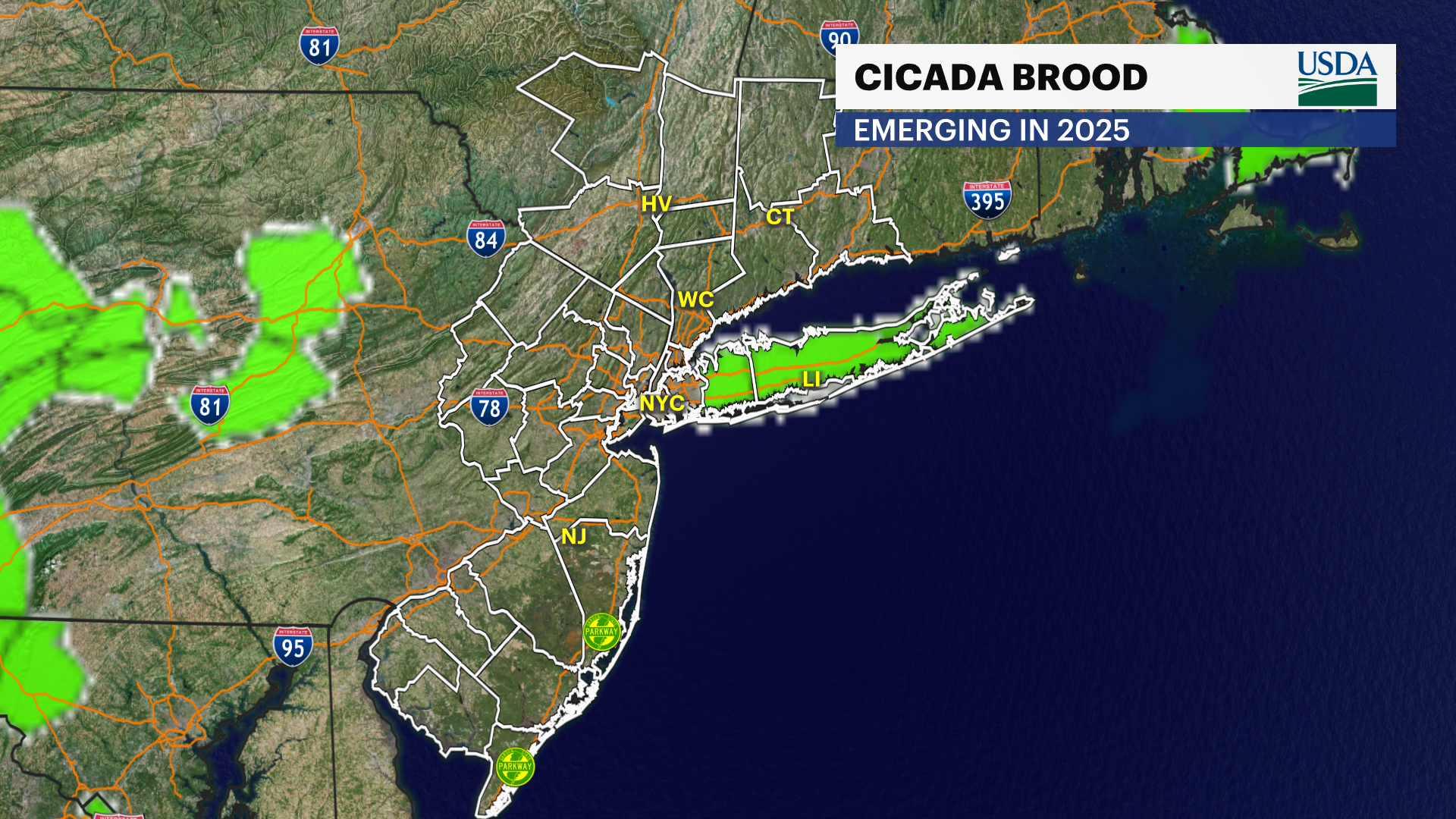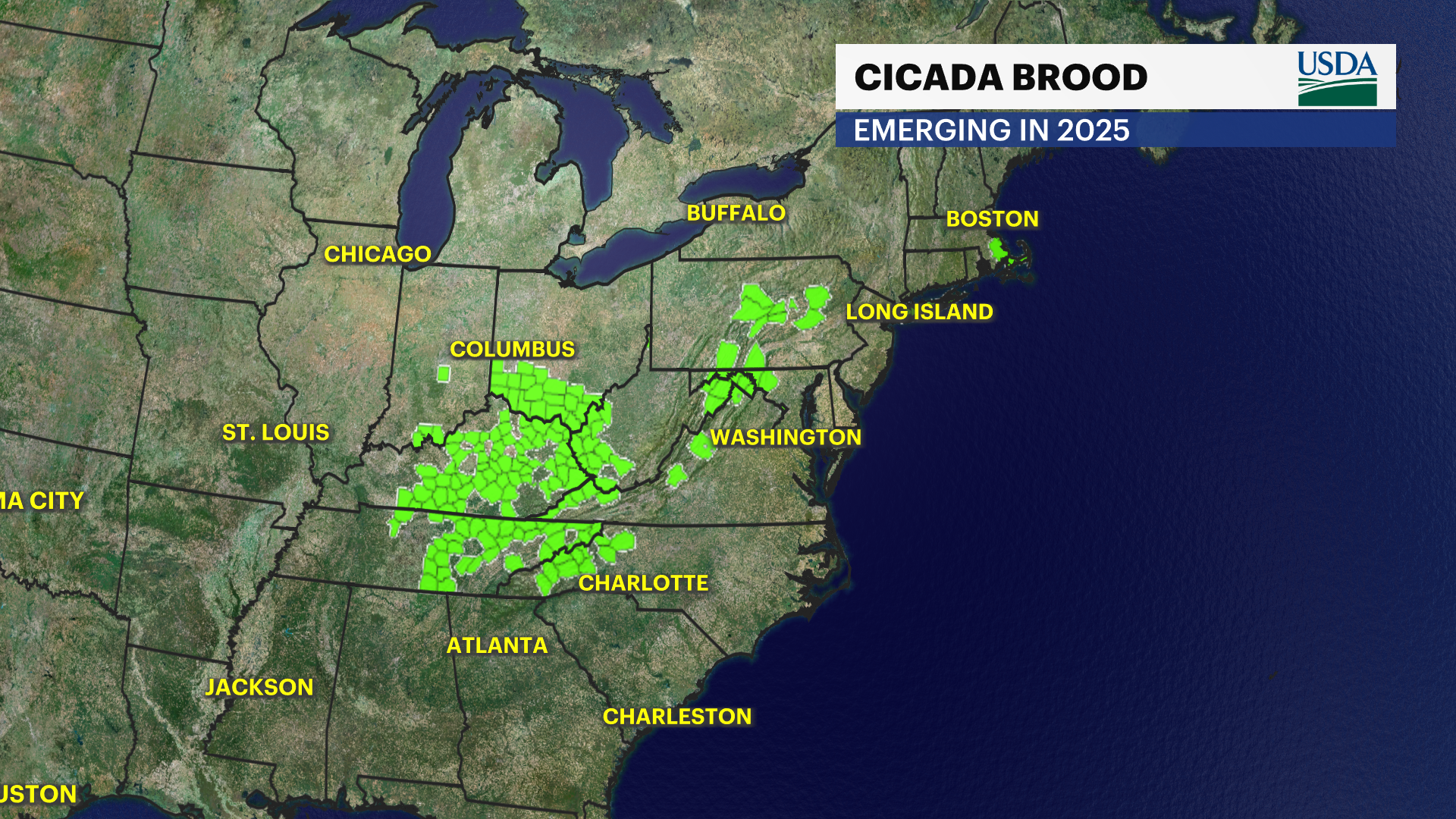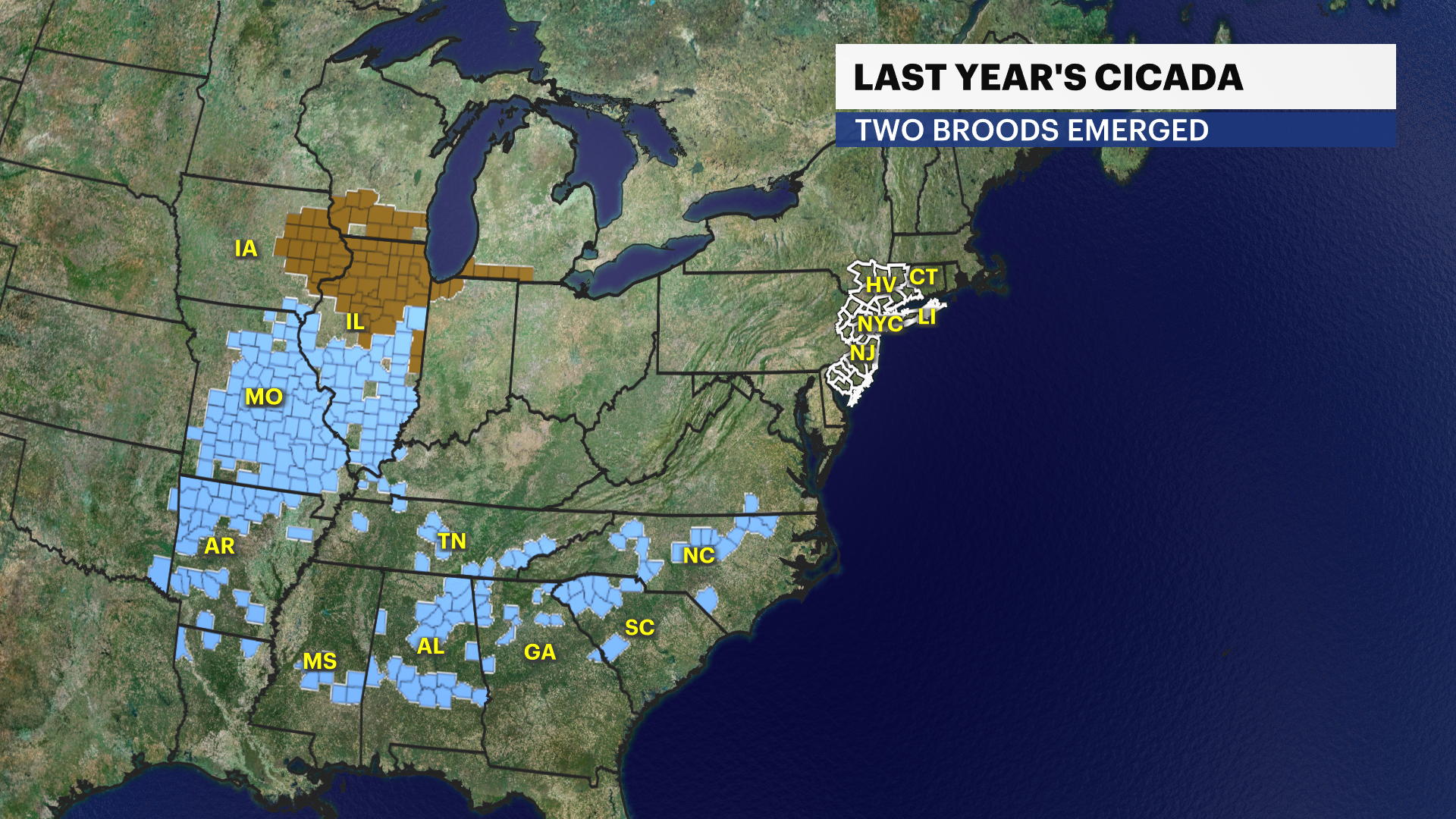Brood of Cicadas expected to emerge on Long Island for 1st time in 17 years
Male cicadas can be as loud as a lawn mower, and there could be a lot more of these bugs than usual this summer on Long Island.
Share:
More Stories
1:44

Rahway residents clean up flooded basements after water main break
3ds ago3:38

be Well: Earth-friendly glam
5ds ago0:49

NJ joins coalition of states suing Trump administration for blocking wind energy
6ds ago3:44

be Well: Beauty products that respect our planet
6ds ago1:00

Rutgers University astrophysicist discovers potential star-forming cloud
13ds ago1:49

One man's mission to clean his neighborhood sparks others to join the effort
13ds ago1:44

Rahway residents clean up flooded basements after water main break
3ds ago3:38

be Well: Earth-friendly glam
5ds ago0:49

NJ joins coalition of states suing Trump administration for blocking wind energy
6ds ago3:44

be Well: Beauty products that respect our planet
6ds ago1:00

Rutgers University astrophysicist discovers potential star-forming cloud
13ds ago1:49

One man's mission to clean his neighborhood sparks others to join the effort
13ds ago
Make some noise for the cicadas ... they will this summer!
Male cicadas can be as loud as a lawn mower, and there could be a lot more of these bugs than usual this summer on Long Island.
Long Island will witness the emergence of Brood XIV (also known as Brood 14), a group of periodical cicadas that emerge once every 17 years. Their last appearance was in 2008.


Understanding Brood XIV
Brood XIV spend most of their lives underground, feeding on tree roots, and emerge in large numbers once every 17 years to mate. Their synchronized emergence is a remarkable natural event, and a loud one too!
The Importance of Cicadas
Love them or hate them, cicadas play a crucial role in the ecosystem. They are a keystone species, which means they're the foundation for a healthy ecosystem as a food course for many bird and mammal species. Their emergence provides a temporary but abundant food supply, and they enrich the soil too when they burrow out to mate and decompose at the end of their lives. This is great for plant life.
Cicadas made headlines last year, but not for New York.

Last year, a rare double emergence of cicadas occurred with Brood XIII and Brood XIX cicadas. Brood XIII emerges every 17 years and Brood XIX emerges every 13 years. This event was notable because it's rare for two broods to emerge at once, especially in the same part of the country.
However, these broods did not have an impact in New York, as these broods are primarily found in the Midwest and Southeast regions.
Cicada behavior and lifecycle
Cicadas typically emerge when soil temperatures are regularly in the 60s, which happens in May in our area.
Once the cicadas are above the ground, , they molt into their adult form. Males begin their loud mating calls, which can reach up to 100 decibels, according to the USDA. Adults don't live long. In early July, the adult cicadas finish mating and die. Females lay the eggs, which become nymphs, and burrow into the soil to continue the 17-year cycle.
Concerns over declining populations
The population of cicada broods in general is on the decline on Long Island. According to the University of Connecticut, the brood is becoming more scattered and it's possible that only a small amount will emerge.
The reason for the declining population is likely related to habitat loss due to urban development and the use of pesticides.
Aside from their loud noise, cicadas are harmless to us and to most crops. Fewer cicadas harm the balance of our local ecosystem.
Conclusion
The emergence of Brood 14 cicadas on Long Island this summer is a loud and fascinating event. Although we see cicadas every summer, the number that pop up when an entire brood emerges is remarkable. This brood will emerge for the first time since 2004, but unfortunately their numbers are on the decline so we'll have to wait until May to see if the brood is still strong or if it's on the verge of extinction on the island.
More from News 12
1:43

Turbulent times continue for Newark Airport following FAA ground stop
1:35

Something for everyone at the ‘MomClair’ indoor flea market
0:49

Tenafly's Edan Alexander to be released in Gaza ceasefire efforts, Hamas says
1:46

Study: Eating ultra-processed food every day puts people at risk of developing Parkinson's
0:28

Gloucester County home erupts in fiery explosion
0:27
